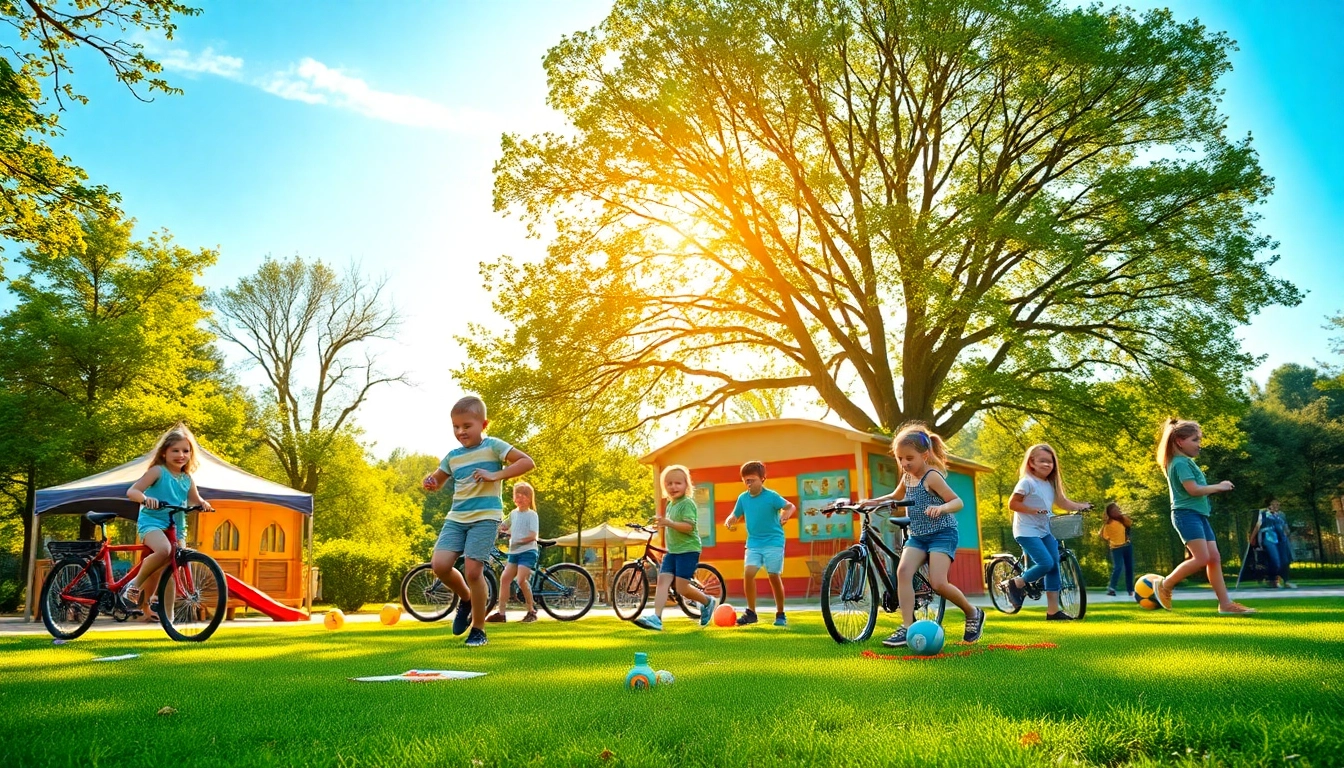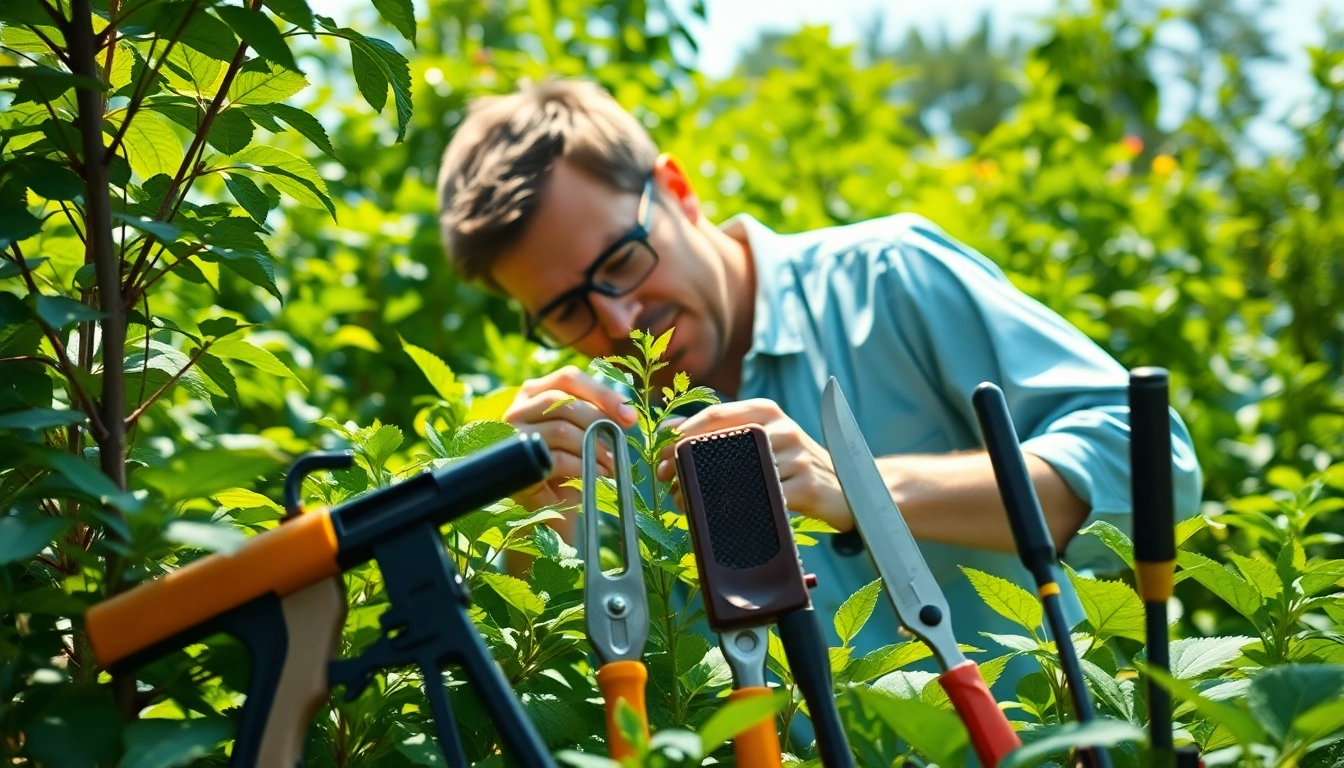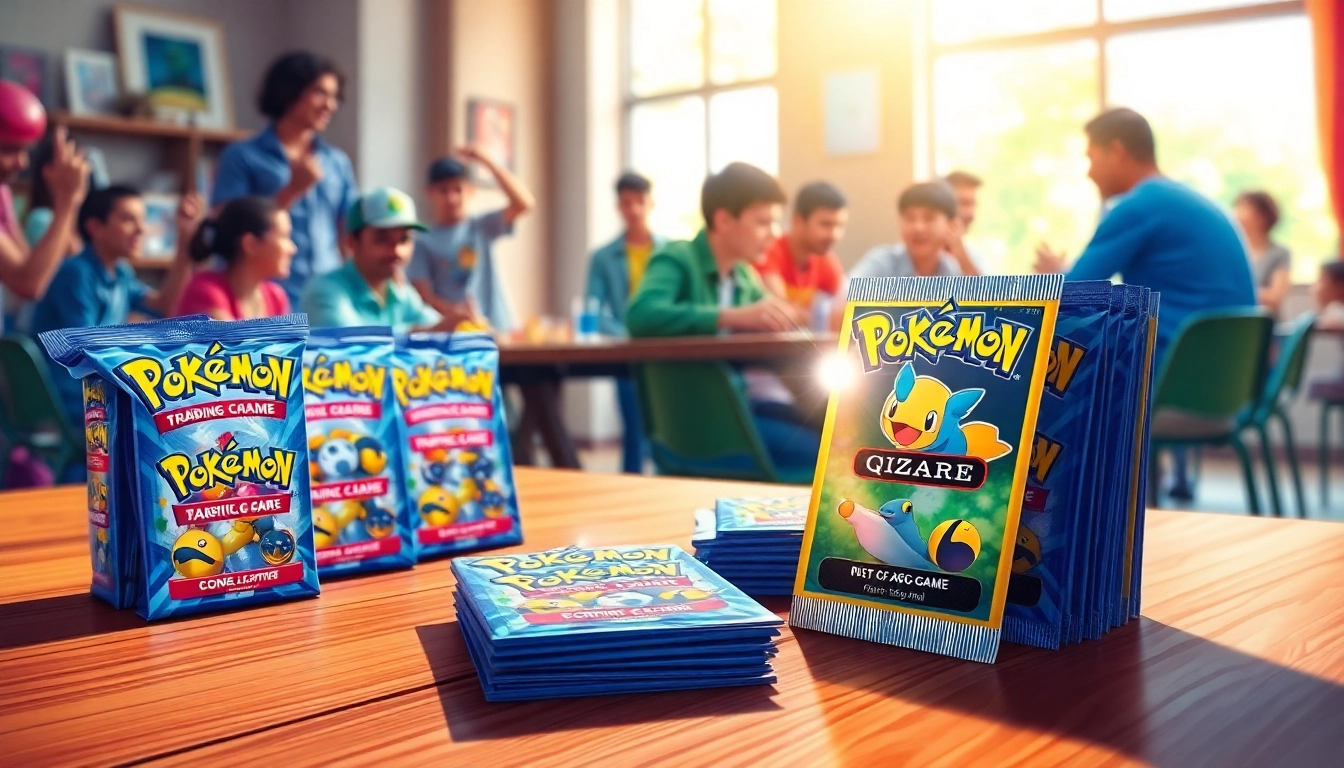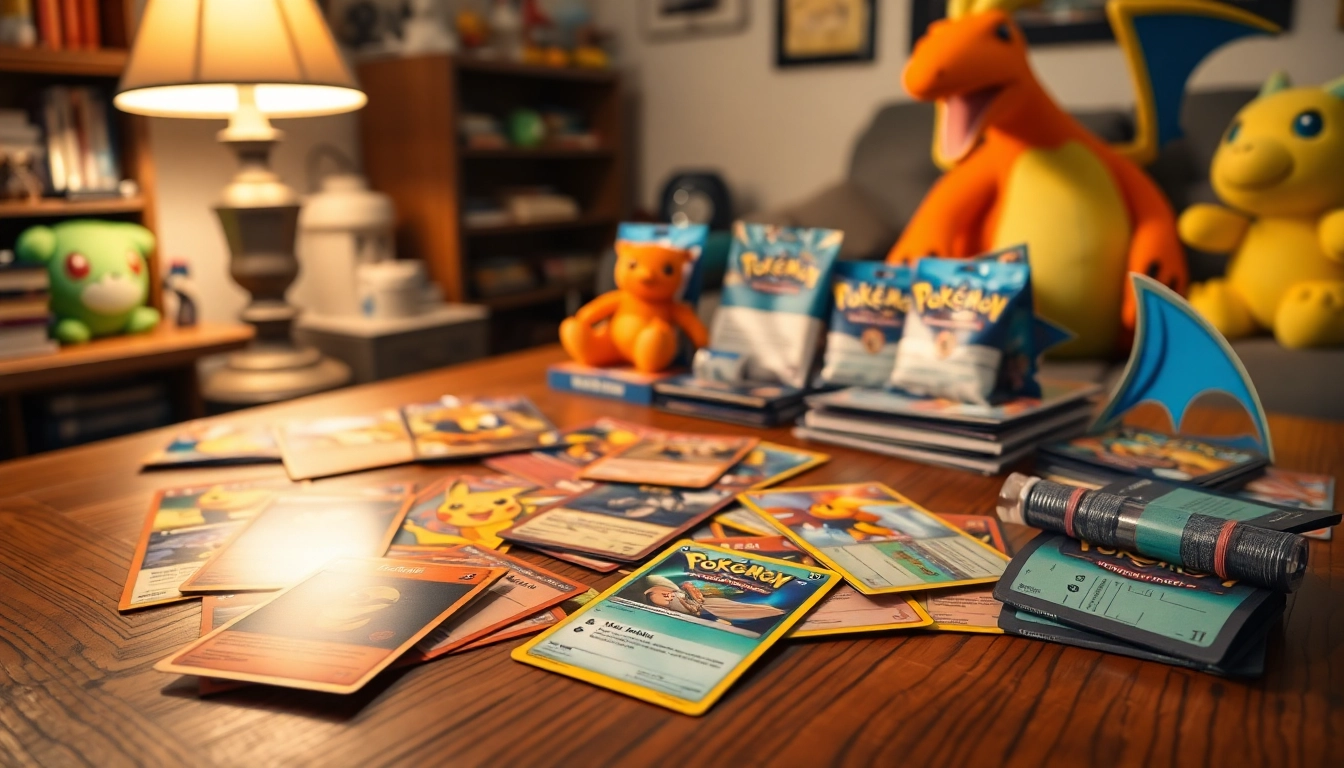
Understanding Holiday Camps
Definition and Purpose of Holiday Camps
Holiday camps are organized recreational programs designed for children and teenagers, typically during school holidays. These camps provide a structured environment where young participants can engage in various activities, learn new skills, and forge friendships, all while under proper supervision. The fundamental purpose of holiday camps is to offer families a hassle-free way to keep their children entertained and active during school breaks, fostering both social and personal development.
Generally situated in rural areas, cities, or on the outskirts, these camps range from day camps that facilitate part-day attendance to overnight experiences where campers stay on-site. As more parents are looking for trusted places for their children during breaks, organizations like holiday camps have emerged as vital resources for community engagement and child development.
Benefits of Attending Holiday Camps
The advantages of attending holiday camps extend well beyond mere entertainment. Here are some key benefits:
- Social Skills Development: Camps provide children with the opportunity to meet peers from diverse backgrounds, promoting teamwork and communication skills.
- Physical Activity: Engaging in physical activities helps combat sedentary behavior, encouraging kids to adopt healthier lifestyles while having fun.
- Skill Building: Holiday camps often feature a variety of workshops in arts, sports, and other disciplines, giving kids the chance to discover new hobbies.
- Confidence Boosting: Successful completion of activities fosters a sense of achievement, which can significantly enhance a child’s self-esteem.
- Parental Support: Many camps provide childcare in a nurturing environment, making it easier for working parents during school holidays.
Types of Holiday Camps Available
Holiday camps can be broadly classified into several categories, including:
- Sports Camps: These camps focus on athletic training, providing kids the chance to excel in sports like soccer, basketball, swimming, and more.
- Art and Creative Camps: Offered by community centers and private organizations, these camps allow kids to explore their creative sides through various art forms.
- STEM Camps: Concentrating on science, technology, engineering, and mathematics, these camps aim to inspire the next generation of innovators.
- Adventure Camps: Focused on outdoor exploration and survival skills, these camps often include hiking, rock climbing, and camping experiences.
- Day Camps: These camps provide a mix of activities while allowing children to return home each day, suitable for younger campers or those new to the camping experience.
Activities Offered at Holiday Camps
Outdoor Adventures and Sports Activities
Outdoor activities are a key component of many holiday camps, providing children with the chance to engage with nature and stay active. Common outdoor activities include:
- Sports: Team sports such as soccer, basketball, and volleyball are often part of the curriculum, promoting teamwork and physical fitness.
- Nature Walks: Camps may incorporate guided nature walks or hiking trips to help children appreciate the environment and learn about local flora and fauna.
- Water Activities: Swimming, canoeing, and kayaking are popular in camps located near water bodies, teaching valuable water safety skills and providing fun ways to cool off.
- Camping Skills: Activities such as setting up tents, cooking over a campfire, and navigating with a compass are excellent ways for kids to develop survival skills and resilience.
Arts and Crafts Programs
Arts and crafts activities are vital for developing fine motor skills and creativity in children. Programs often include:
- Painting and Drawing: Facilitating self-expression through various mediums, from watercolors to charcoal.
- Craft Projects: Hands-on activities like pottery, jewelry making, and sewing allow children to create tangible crafts they can take home.
- Theater and Performance: Many camps include drama workshops where kids can perform skits or musicals, promoting confidence and creativity.
- Photography and Digital Arts: Teaching modern skills, camps may offer classes on photography basics and digital art creation.
Cultural and Educational Workshops
Holiday camps often aim to broaden children’s horizons through cultural and educational activities. Workshops might encompass:
- Language Courses: Introductions to new languages or cultural experiences expose kids to global communities and traditions.
- Cooking Classes: Hands-on cooking sessions teach kids about nutrition while allowing them to create delicious dishes.
- Science Experiments: Engaging the curiosity of young minds, camps can feature interactive experiments that make learning fun.
- Environmental Education: Workshops on sustainability, conservation, and ecology can inspire children to be stewards of the planet.
Choosing the Right Holiday Camp
Factors to Consider When Selecting a Camp
Selecting the right holiday camp is crucial for ensuring a positive experience for both children and parents. Here are important factors to consider:
- Location: Proximity to home can make drop-off and pick-up easier, particularly for younger children.
- Age Appropriateness: Ensure the camp offers programs suitable for your child’s age group, as this affects both safety and engagement.
- Staff Qualifications: Research the camp staff’s qualifications and training, including background checks and first aid certifications.
- Activities Offered: Assess whether the camp provides activities that align with your child’s interests.
- Camp Size: Smaller camps may offer a more personalized experience, while larger ones can provide a wider variety of activities.
Popular Holiday Camps to Consider
When exploring options, consider some well-rated holiday camps that have earned positive reviews:
- YMCA Camps: Nationwide, YMCA camps offer a range of activities from sports to arts, ensuring there’s something for everyone.
- Camp Invention: A STEM-based camp that focuses on hands-on learning experiences while promoting creativity and teamwork.
- Girl Scouts/Boy Scouts Camps: These programs teach outdoor skills, leadership, and community involvement.
- Specialty Camps: Seek out camps that specialize in specific areas your child is passionate about, such as coding, sports, or the arts.
Reading Reviews and Recommendations
Before making a decision, it is essential to read reviews and recommendations from other parents and campers. Look for:
- Online Ratings: Websites and forums offer valuable insights into other families’ experiences and satisfaction with the camp.
- Social Media Insights: Check the camp’s social media pages for testimonials, images, and video clips that reflect the camp atmosphere.
- Word of Mouth: Personal recommendations from friends or community members can be highly valuable in gauging a camp’s reputation.
How to Prepare for Holiday Camps
Packing Essentials for Campers
Proper preparation involves packing the right essentials for camp life. Important items to consider include:
- Clothing: Pack appropriate clothing for various activities, including swimwear, athletic wear, and comfortable shoes.
- Toiletries: Basic hygiene items such as toothbrush, toothpaste, soap, sunscreen, and insect repellent are essential.
- Sleeping Gear: For overnight camps, include a sleeping bag, pillow, and any comfort item that helps your child feel secure.
- Camping Equipment: Depending on the camp type, consider packing items like a flashlight, reusable water bottle, and backpack.
Setting Expectations with Kids
Before the camp experience, it’s important to set realistic expectations with your child. Consider discussing:
- Daily Routine: Explain what a typical day looks like and the range of activities they can expect, from morning to evening.
- Social Interaction: Encourage your child to be open to making new friends while discussing the importance of kindness and teamwork.
- Independence: Emphasize that they will have opportunities to be independent, which can foster a sense of responsibility and self-reliance.
Safety Protocols and Guidelines
Ensuring your child’s safety at camp is paramount. Familiarize yourself with the camp’s safety protocols, which may include:
- Emergency Plans: Camps should have established procedures for emergencies, including weather-related issues and medical emergencies.
- Health and Wellness: Review the camp’s policy on health issues, including medications, allergies, and medical staffing.
- Supervision Ratios: Verify that the camp maintains proper adult-to-child ratios to ensure adequate supervision during activities.
Maximizing the Experience at Holiday Camps
Encouraging Social Interaction Among Campers
A vital part of the camp experience is social interaction. Encourage your child to:
- Engage in Group Activities: Participate actively in group games and exercises designed to promote teamwork and camaraderie.
- Be Open and Friendly: Advocate for an approachable attitude, which can help them make new friends and foster connections.
- Share Experiences: Encourage your child to share stories or participate in discussions during meals or downtime, enhancing their social skills.
Getting Involved as a Parent or Guardian
Parental involvement can positively impact your child’s camp experience. Consider the following:
- Ask Questions: Reach out to camp staff with any queries about safety, activities, or adjustments your child may need.
- Volunteer Opportunities: Some camps offer volunteer positions for parents, allowing you to be more engaged while watching over your child.
- Stay Connected: Utilizing camp communication tools, such as newsletters or blogs, can keep you updated about your child’s experiences.
Post-Camp Reflection and Feedback
After camp, engage in conversations with your child about their experiences. Prompt them to share:
- Favorite Activities: Discuss what they enjoyed the most and why, giving insight into their preferences and interests.
- Lessons Learned: Encourage your child to reflect on new skills or personal insights gained during their time at camp.
- Feedback for Improvement: If there were aspects they didn’t enjoy, communicate this to the camp for future improvement and provide a well-rounded experience.







